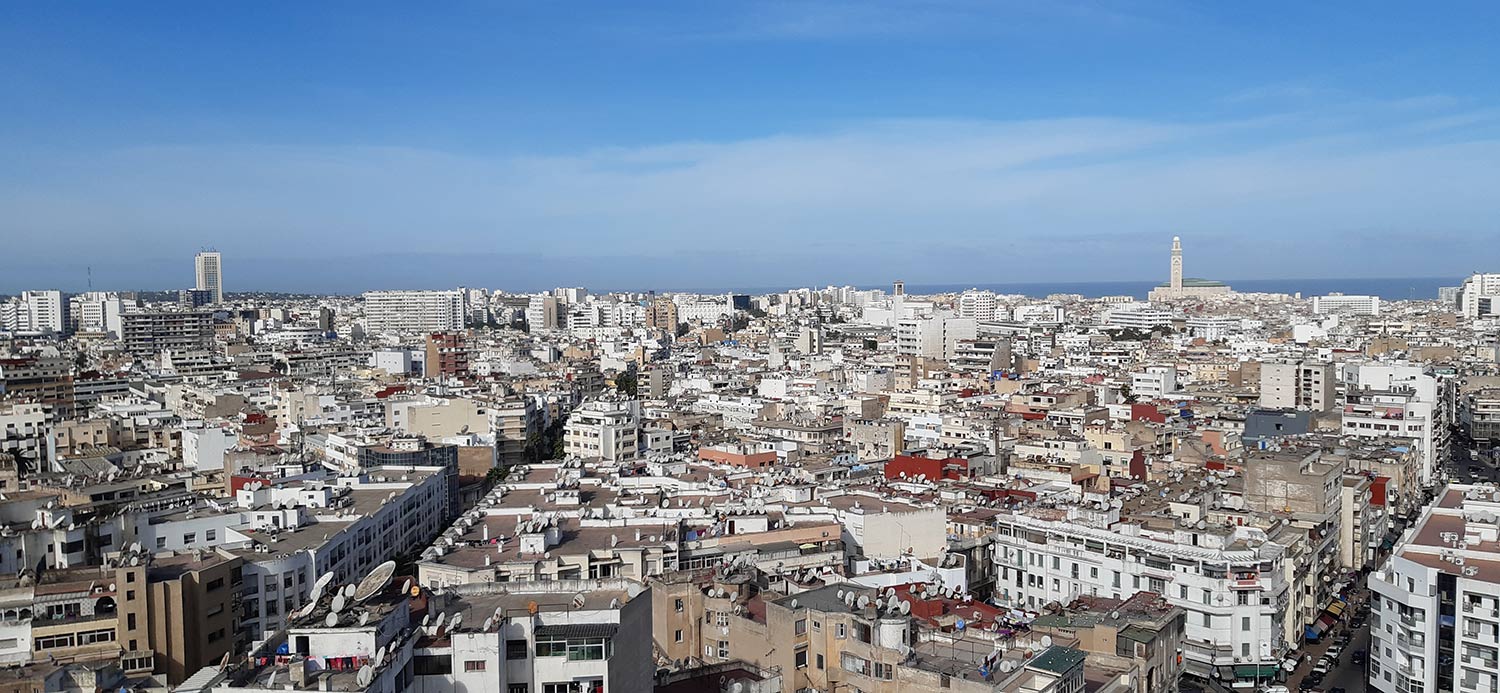If you needed to send a letter to your neighbor, you wouldn’t choose to send it via airmail across the continent and back first. Yet, this is how Internet traffic is routed in some parts of the world. For example, it’s not unusual for Internet traffic in Africa to first travel to Europe before ending up back in Africa at its destination. This is why we need Internet Exchange Points (IXPs) and sustainable peering infrastructure.
An IXP is where networks physically meet to exchange local Internet traffic cost-effectively. When traffic stays local, it improves the network’s efficiency and resiliency, and users get faster Internet speeds at lower costs.
A Case for Internet Exchange Points: Morocco
Morocco is ranked first in Africa for the number of people using the Internet as a percentage of the total population, according to the Internet Society Pulse Country Report for Morocco. IP transit costs are relatively cheap considering the proximity to some large European IXPs, the private sector is dynamic and growing, and Casablanca hosts an active ICT hub, which attracts many IT companies, content creators, and other players. But still, there is much room for improvement to build a thriving local Internet ecosystem with adequate infrastructure to support it at price points local consumers can afford.
Morocco built its first Internet Exchange Point, CAS-IX, in 2019, with support from the Internet Society and France-IX and technical training with help from the Morocco Internet Society Chapter. Last year (2022), the Internet Society provided CAS-IX with a grant to purchase and install new equipment and install needed services to run and manage the IXP.
With onsite training and assistance, CAS-IX installed new switches, which connect devices within a network and forward data packets to and from those devices. CAS-IX also installed IXP services, including a full stack management platform called IXP Manager, and an open-source software called Routinator that helps ensure proper routing security.
How the Internet Exchange Point Will Continue to Improve Morocco’s Internet Experience
Today, the new infrastructure can offer two times higher port density and ten times higher speed. This gives users in Morocco a much better Internet experience.
This infrastructure will enable CAS-IX to attract high-traffic networks such as Content Delivery Networks (CDNs) and latency-sensitive applications at higher speeds. Better equipment means better quality of service for IXP members, which means better service to end users in Morocco. The equipment also allows CAS-IX to improve security by encrypting data at the lowest transmission level through features like MACSec.
We will continue to work with CAS-IX to improve its infrastructure and long-term sustainability. CAS-IX is currently in the process of getting its own IP address resources, continuing to improve efficiency and reliability, and bolstering its routing security so that it can join MANRS for IXPs in the future. Our work in collaboration with partners like Meta helps build and enhance IXPs and support the organizations that build a better Internet for us all.


